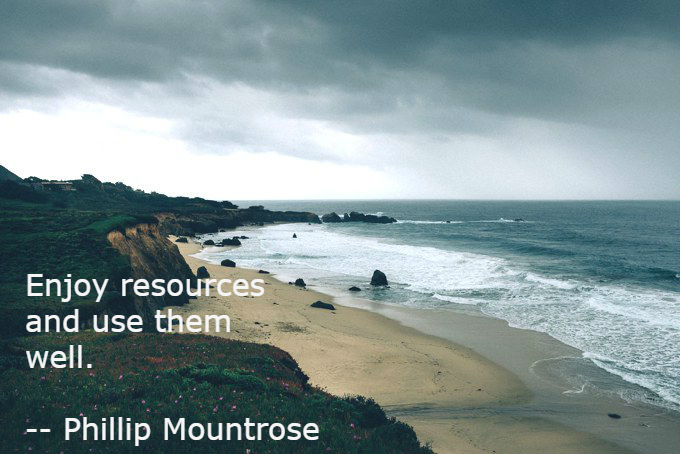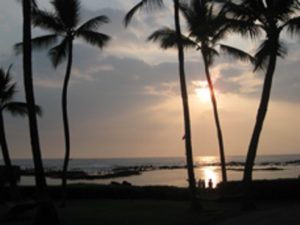What do you spend your money on? Part of happiness and wealth comes from how we spend our money.

Social scientists and researchers explore the ways people spend money and how it creates happiness. They sometimes divide spending into two basic categories: spending money on things and spending money on experiences.
Both areas can be rewarding or wasteful, depending on how you use that symbolic paper or credit that you have. Plus it’s not an either/or choice, with one way being better than the other.
Here are a few points to note…
Buying things (like a new phone) has been shown to have more recurring, ongoing happiness. Buying experiences (like dining out or going to a concert) tends to be a more intense, deeper experience, but you have no physical ongoing reminder of the experience, compared to buying a thing like that nice coat you wear regularly.
Yet the memory of the experience might be lasting and build positive connections in your mind and sense of well-being. Experiences with people might be drawn on to develop relationships and make further connections. You might go to a yoga class with a friend and, at a later time, do other activities together or collaborate in a shared area of interest like co-teaching a health class.
Another aspect of buying things is how you use what you buy. Just shopping for clothes can be a fun and relaxing experience. On the other hand, there is may be an added value and utility for buying that tennis racket, camera or musical instrument. Those purchases may be great for your creativity, fun and musical or movement skills, as well as your emotional and mental well-being. As Stephen Pollan noted in Die Broke, you might as well make the most out of your life and live and spend wisely, and fully, since you can’t take it with you.
The downside of buying things is to get lost in the material trappings, chasing bright shiny objects or status symbols, and using your money, time and resources impulsively. The decisive factor is to discover why you are purchasing something. Not every purchase needs to be a weighty, deliberative decision of course. The amount of the purchase certainly is factor. Buying a car would take more consideration than buying a box of tissues.
There are also things that further your education like books, courses and trainings. These purchases can have long-lasting impact and elevate your thinking and enlarge your perspective.
From a broader view, you are creating a lifestyle by how you use your money. Moreover, where you spend your money supports those who receive it. How do you feel about the people and exchange of energy, funds and things where you shop? There is something to shopping locally and thinking globally. Are you making your life — as well as the larger community and world — better by your purchases? Buying organic, non-toxic things is using your money for your own health and supporting those vendors and companies that are making a better world.
Spending on experiences can be fleeting in time, such as an hour chatting with a friend at a coffee shop or going to an interesting evening class with your partner. A rarer experience of taking a vacation can be a great retreat or memorable getaway. Or it can just be an escape from your life, a way of avoiding things you don’t want to face or change.
Wealth and Happiness: Do You Need a Vacation?
Sometimes people seek outside entertainment rather than embracing their present. For example, it can be fun having vacation experiences or it can be a busy to-do list. You can be impulsively spending and doing things just to escape your life. Relaxation and recovery can be healing or it can be a way of avoiding the difficulties one faces (or wants to avoid).
If on a trip, then, the key would be enjoying the moment, perhaps in more natural settings and exploring the environment, which may or may not take money. Hiking, walking, and taking scenic routes can be a meditative journey and a wonderful sightseeing just as well as skydiving, helicopter rides and sunset catamaran sailing.

The first time we visited Hawaii, we were awestruck by its natural beauty. Just the air quality, tropical plants and birds, and ocean wonders exceeded our imagination.
And then it was time to return. Jane started crying. We realized we had to return to Sacramento, where we lived at the time. We weren’t happy living there, with the congestion, lack of natural beauty, air pollution and summer heat. Although we were beginning our holistic healing passions and studies on the side, we were still employed full-time in jobs that weren’t where we ultimately wanted to be. For Jane in particular, her architect job was becoming more stressful and eventually her health broke down with a chronic fatigue-like condition.
Eventually, we were able to support ourselves full time doing what we loved: training, coaching and publishing in areas of personal growth. When we became financially stable, we uprooted from Sacramento and went to an area we previously enjoyed on a vacation: the Central Coast of California. We still happily live there with its temperate climate, small-town friendliness, and scenic coastal beauty.
We shaped our career by following our dream and calling — to take our gifts and talents to create a more loving, prosperous world, where everyone’s gifts are honored, as well as respecting nature and all the resources we have been given in life. We devoted more of our time and energy living a life that was inspired by that dream. And we shared that with others, encouraging them to create and follow their dreams too.
Fortunately we still enjoy our coaching, healing and writing careers, probably more than ever as we age and gather further experience. So when we do have the opportunity to return to Hawaii, we still love it, but also enjoy where we spend most of our time at our home base. The lesson is to find ways to have enjoyable and meaningful experiences wherever you are and wherever you spend your money.
Happiness and Wealth Set Point
Your wealth set point — how wealthy you feel and how much money you need and spend — includes how you spend your money. Ultimately it’s not whether you buy things or experiences. It’s how meaningful and enjoyable those expenditures are for living a full life. It’s not how big or small the purchase is. It could be a small souvenir you love or a wonderful car. It could be a call to coffee with a friend or a two-week vacation abroad. Big and small things can make us feel fulfilled, excited and resourceful.
It’s also our attitude toward what we buy. It can give us a momentary lift, a sense of satisfaction or gratitude, or deep appreciation of life, our own and others’. Or we can get greedy, cling or obsess on things, being overly attached to possessions or people. If you feel your greed or spending is at an addictive level, EFT and other modalities may help.
So it can be valuable to consider how you use your money, and how it enriches you and others, be it with material things or experiences. Money is a tool, a convenient means to the end of what it purchases. Is that purchase making your life more enjoyable and meaningful? Then it’s probably a good purchase — actually a wise investment in yourself and your world.

